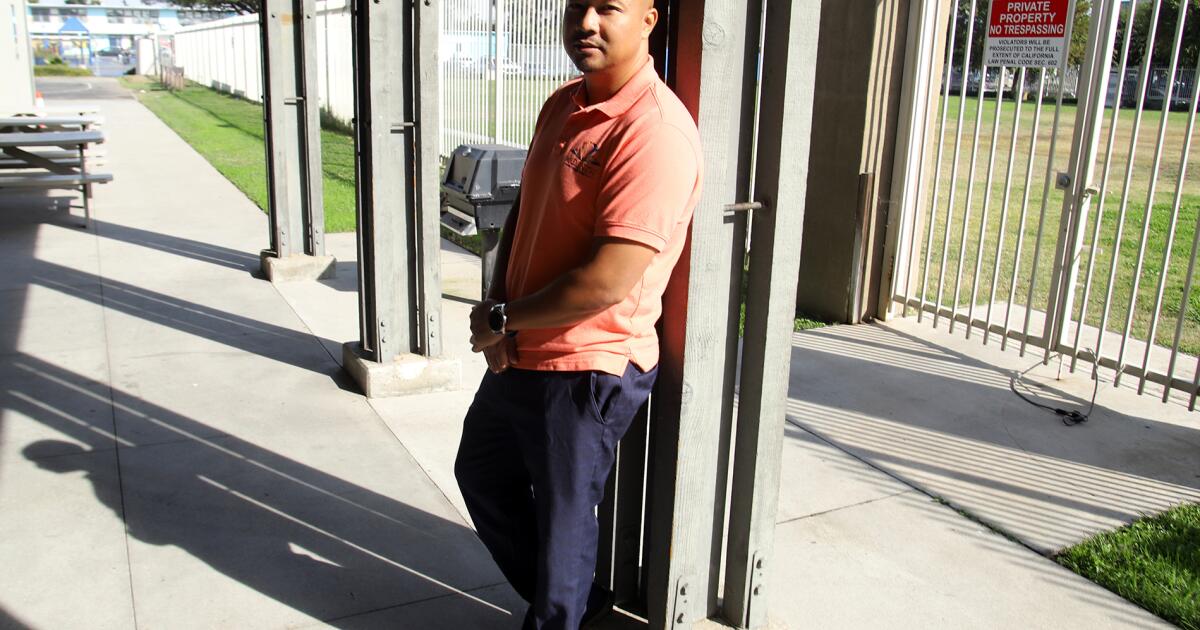SACRAMENTO — Gov. Gavin Newsom on Friday offered clemency to 25 felons, including a Cambodian immigrant facing deportation, in a series of pardons and commutations issued before the Easter holiday.
The governor has been a critic of the Trump administration’s immigration policy, including condemning the deportation of Venezuelan immigrants to a maximum-security prison in El Salvador last month without due process. Newsom’s pardon of Sithy Bin of Long Beach follows efforts by the governor and his predecessor, Jerry Brown, to use their clemency powers to help immigrants targeted for deportation.
Bin, a former member of the Crips with Attitude gang, was sentenced to 40 years to life in 2008 after he was convicted in Stanislaus County of shooting at the home of a rival gang member during a barbecue, injuring a bystander.
Bin became a minister during the 15 years he spent in prison. His good behavior and work to rehabilitate himself and support other felons led to a reduced sentence.
“While in prison, Mr. Bin was never disciplined for misconduct,” Newsom wrote in his pardon order. “He engaged in extensive self-help programming, maintained an excellent work history, and received numerous commendations from correctional staff for his positive transformation.”
Bin was released into the custody of Immigration and Customs Enforcement during the COVID-19 pandemic and detained at a Mesa Verde processing center, according to the American Civil Liberties Union. Due to overcrowding and unsafe conditions, he was released from detention in 2020.
At a recent immigration appointment, he was given 60 days to self-deport back to Cambodia, a country he left as a toddler, according to the Signal Tribune.
Bin and his supporters sent letters to Newsom requesting a pardon under the hope that it would allow him to remain in California.
A pardon restores some rights to former felons, such as the ability to serve on a jury or to seek a professional license. In limited cases, pardons can restore gun rights to those convicted of crimes that did not involve a dangerous weapon or relieve a sex offender from being required to register.
The governor considers a clemency applicant’s efforts to improve themselves, their conduct since the offense, appropriate justice and the impact on crime victims and the community before awarding pardons or commutations, according to the governor’s office. Newsom has granted 224 pardons, 150 commutations and 42 reprieves since taking office in 2019.
The governor on Friday also offered a posthumous pardon to Sgt. Richard Allen Penry, a U.S. Army veteran and recipient of the Medal of Honor. Newsom announced he was working on the Vietnam War veteran’s pardon on Veterans Day in November.
Penry, a Petaluma native, received the nation’s highest honor for “extraordinary heroism at the risk of his own life” from President Nixon in 1971. He returned home with post-traumatic stress disorder, which was not well understood at the time, and started using drugs to self-medicate.
Penry was arrested two years after his Medal of Honor for selling $950 of cocaine to an undercover officer, according to a 1973 article in the New York Times.
He died in 1994 at 45 years old from cancer likely related to Agent Orange exposure, and local advocates have worked for years to contextualize his crimes with his service-related mental illness.
Newsom received approval from the California Supreme Court to pardon Penry, a requirement when someone has more than one felony conviction.
Bin and Penry are among 16 felons who received pardons and nine people who received commutations.
Among those who received commutations was Refugio Castillo. In 1986, he and accomplices kidnapped two North Hollywood men who owed them money and held them for ransom. The hostages were beaten while being held captive and later released.
Castillo, a Peruvian national, and his accomplices were considered international bandits and wanted on several continents, according to the Los Angeles Times coverage of their trial, which lasted more than five months. At the trial, Deputy Dist. Atty. Kenneth A. Loveman said the kidnappers falsely believed that the victims were wealthy drug dealers.
The four were convicted on two counts each of kidnapping and robbery and one count each of conspiracy to kidnap for ransom. A fifth defendant was acquitted, and another suspect was fatally shot by police. Castillo and the three others were sentenced to life without possibility of parole.
Castillo is now 78 years old and has been incarcerated for 38 years. Newsom stated that Castillo has committed himself to self-improvement while in prison and appears to be a good prospect for reentry into the community. The commutation will allow the state Board of Parole Hearings to determine if Castillo is suitable for release.
Times staff writer Phil Willon contributed to this report.

